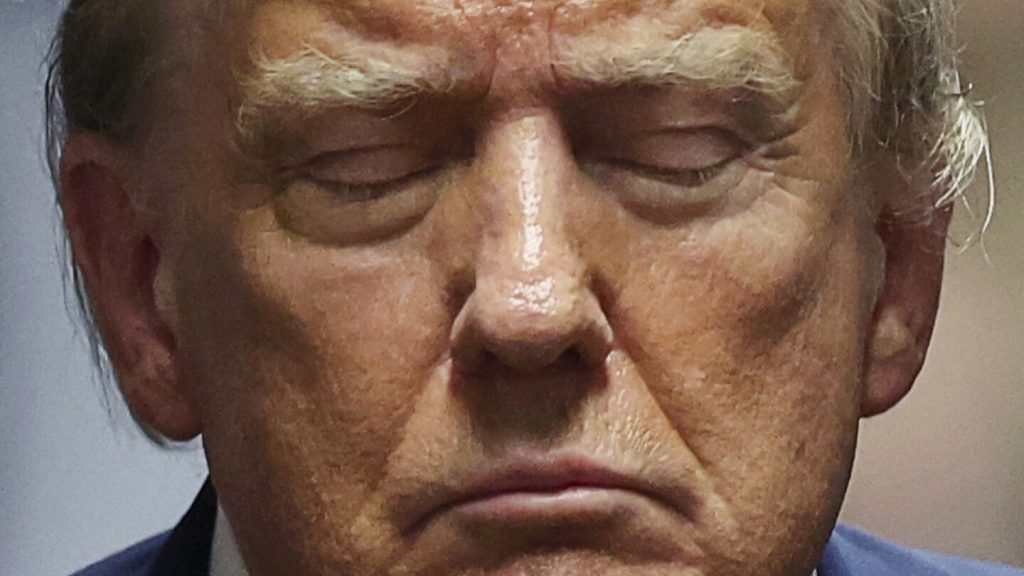Former President Donald Trump is facing a high-profile criminal trial in a Manhattan courtroom where he is accused of orchestrating an illegal scheme to conceal hush money payments during his 2016 campaign. Despite his combative nature, Trump has chosen to remain mostly silent and motionless throughout the proceedings, opting not to testify in his defense. This marks a significant departure from his usual persona, which has been carefully calculated to present a more subdued and respectful image to the jury that will ultimately determine his fate.
Trump’s behavior in court has raised questions about his strategy in handling the trial, with some speculating that he is intentionally avoiding confrontations or outbursts that could harm his case. His decision to remain calm and composed during the trial has been viewed as a strategic move to avoid alienating the jury and potentially facing imprisonment if convicted. Despite facing a gag order that restricts him from criticizing witnesses, Trump has been able to communicate with the media and his supporters outside the courtroom to address his frustrations and deliver his message.
While Trump’s demeanor in court has been noted for its lack of aggression or agitation, there are concerns that he may appear disengaged or disrespectful to the proceedings. Observers have commented on his habit of closing his eyes and leaning back in his chair during the trial, with some speculating that he may be falling asleep. However, Trump has denied these claims, stating that he is merely listening intently and taking in all the information presented in court. His behavior has been closely scrutinized by legal experts who believe that his demeanor could influence the jury’s perception of him and impact the outcome of the trial.
Throughout the trial, Trump has displayed moments of alertness and engagement, particularly during key testimonies from witnesses. However, there have also been instances where his reactions prompted a reprimand from the judge for appearing disrespectful or intimidating towards jurors and witnesses. Despite these challenges, Trump has maintained a mostly composed demeanor, with occasional interactions with his lawyers and documentation of his notes. His behavior in court has been compared to his past outbursts during civil trials, where he displayed a more confrontational and defiant attitude towards the legal proceedings.
Legal analysts have expressed varying opinions on Trump’s courtroom behavior, with some suggesting that his perceived lack of attentiveness or respect could negatively impact his case. Others believe that a more aggressive or angry demeanor from Trump may be more favorable in influencing the jury’s perception. Regardless of his approach, Trump’s trial marks a significant moment in his post-presidential life, as he faces the possibility of becoming the first former president convicted of felony charges. The outcome of the trial remains uncertain, with closing arguments scheduled to take place soon before a jury decision is reached.


